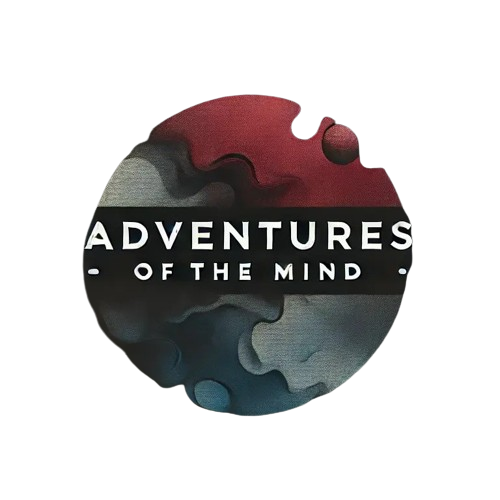Why You're Never Happy
Published by Ben Worrall 14th September 2024

“If you want to make a man happy, add not to his riches but take away from his desires.” — Epicurus
A curse has been inflicted upon us, and that curse is the wanting mind. Our mind appears to be a machine that feeds on desires for continued operation. This manifests in our everyday lives as a never-ending thirst for more. You can see this playing out everywhere, from the cultural narratives that inform our notion of a life well lived to our own insecurities, inadequacies and relentless boredom.
Have you noticed how nothing is ever enough for you? What once was your prime object of desire becomes stale and meaningless once captured and contained. You’re trapped in a cycle of seeking.
And it’s not just you. This is an aspect of the human condition that dominates all of our lives. It’s the psychological representation of the myth of Sisyphus — who was forced to push a boulder up a hill every day for eternity.
Let me tell you a personal story that reveals the wanting mind in action.
A Story
I returned to Taipei from the UK (my home country) in 2023. I had lived there for many years previously and missed it a lot — so needless to say I was excited about re-experiencing the country after being gone for so long.
When I first came back, there was a freshness and excitement to it. Everything was meaningful. Just travelling a couple of stops on the metro and walking around in any part of the city was deeply fulfilling because it was all new again. I felt a deep sense of gratitude for being back in a place that I wasn’t sure I’d ever return to. I even felt emotional on a couple of occasions just doing seemingly normal activities.
Now, a year and a half later, the initial magic of being back in the country has worn off. I still enjoy being here, but it’s become routine. My wanting mind has shifted once again towards doing something else or exploring somewhere new.
This need for novelty may be a bigger part of my personality than it is for most people, but I still think there’s an important point to be made here and that is the objects of our desire lose their meaning quickly and result in a process of eternal wanting.
Desire and Suffering
Buddhists talk about how desire is at the root of all suffering. When desire takes over and becomes our source of meaning we lose sight of all the gifts we’ve already received and are pushed into the never-ending pursuit of more. By taking this approach we’re essentially giving up the power to dictate our level of personal happiness, and instead staking it on the attainment of a specific goal — which may or may not be within our control.
This attitude leads us to think and act in ways that devalue our sense of being. Instead of enjoying life for what it is, we operate from a place of doing, striving, and grasping. There’s an anxiousness in our thought patterns and a desperation to our behavior.
The problem isn’t so much the desires themselves, but the attitude we take toward having desires. We feel that we must fulfil them in order to be satisfied. What we don’t seem to realise is that not only will the achievement of the desire fail to fulfil us. But the single-minded pursuit is what’s making us unhappy in the first place.
Even when we do receive a positive outcome for the rewards of our efforts, there’s an intuitive sense that it’s hollow and fleeting. It’s like the experience of eating candy and then realising halfway through that it’s not actually that enjoyable after all. Or childhood memories of being incredibly excited about Christmas, until the morning comes and after opening your gifts you realise the anticipation was more fulfilling than the event itself.
The truth is that nothing we hope to attain will ever leave us satisfied. This is the bitter sting that comes with being human. It isn’t pleasant to contemplate because it leaves us in no man's land. We’re now stuck with an internal void. The same void that was previously occupied by the illusion that happiness was something to be found out there in the world. That we would one day be content if we worked hard and achieved all of our desires.
The Being That Possessed Everything
“The mystery of life isn’t a problem to solve, but a reality to experience.” — Frank Herbert
Now that we’re seeing things as they are. Questions arise — What next? Where do we go from here?
Let’s address them using a thought experiment:
Imagine that you’re an all-knowing, all-seeing being. One that has reached the point where you possess everything in the universe and therefore all of your desires have been fulfilled. There’s literally nothing else that isn’t already you. You’ve attained ultimate power.
Are you happy?
Well, how could you be happy?
From the perspective of the ultimate being that you are, there is no such thing as happiness because happiness requires an opposite in order to be experienced. And since there’s no opposite to you, there’s no possibility of being happy.
And so what do you do?
You decide the only way to experience happiness is to limit yourself. To trick yourself into believing that you’re not already everything and that happiness is something that can be attained in opposition to suffering.
In other words, you create your life. A life of limitation where desire, suffering, and happiness all rely on each other for you to experience anything at all.
And so we return to square one. A strange world where desire creates the possibility of happiness in the first place, while also being the root of unhappiness.
The answer then is an acceptance of life as it is and a balance of intentions. Putting one foot forward in pursuing your desires, while also keeping one back in the realisation that your desires are ultimately meaningless and will never bring you contentment or closure. By approaching life in this way, events take on less of a life-or-death importance and become more of a game. You can enjoy the process of going after what you want without falling victim to the self-torture that plagues the seekers and the ambitious.
Most importantly, cultivate the ability to step back and view events from a detached perspective — to be in the world, but not of it. From this vantage point, life can be truly appreciated for what it is. A sense of gratitude, peace, and love begin to seep into your life, simply for the gift of experiencing anything at all. That is the ultimate miracle and all that is needed to attain true happiness.
Ben Worrall





